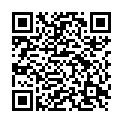|
|
|
| Module code: MAS-20-II3 |
|
|
2S (2 hours per week) |
|
5 |
| Semester: 1 |
| Mandatory course: yes |
Language of instruction:
German |
Assessment:
Module work
[updated 14.06.2021]
|
Exam recurrence:
The information regarding exam recurrence is found within the exam policy of the study programme (ASPO).
|
MAS-20-II3 (P322-0200, P322-0574) Social Work, Master, ASPO 01.10.2020
, semester 1, mandatory course
MAS-20-II3 (P322-0200, P322-0574) Social Work, Master, SO 01.10.2023
, semester 1, mandatory course
|
30 class hours (= 22.5 clock hours) over a 15-week period.
The total student study time is 125 hours (equivalent to 5 ECTS credits).
There are therefore 102.5 hours available for class preparation and follow-up work and exam preparation.
|
Recommended prerequisites (modules):
None.
|
Recommended as prerequisite for:
MAS-20-III1 Methods of Action: Recent Developments and In-Depth Studies Based on Examples
MAS-20-IV Compulsory Elective Seminar
MAS-20-V1 Master’s Thesis
MAS-20-V2 Theory and Research Workshop
MAS-20-V3 Colloquium
[updated 30.10.2023]
|
Module coordinator:
Prof. Dr. Tamara Marksteiner |
Lecturer: Prof. Dr. Tamara Marksteiner
[updated 05.08.2020]
|
Learning outcomes:
This course introduces students to the empirical-analytical research process in Social Science, to the development of research designs, and to the initial use of quantitative methods. After successfully completing this module, students will be able to:
- explain empirical-analytical research, as well as evaluation studies,
- and categorize their methodology critically,
- apply principles of inference and test theory and multivariate regression analysis,
- independently conduct their own quantitative data analysis,
- present a research design in the seminar, solidifying their presentation skills and allowing them to practice handling peer criticism,
- present the methodology they used and the results of their data analysis in a term paper.
[updated 14.06.2021]
|
Module content:
- In-depth study of quantitative research methods
- Critical discussion of existing empirical-analytical research, as well as evaluation studies
- Practicing the use of statistical software (e.g. SPSS)
- Practicing quantitative survey and evaluation methods (especially regression analysis)
[updated 14.06.2021]
|
Teaching methods/Media:
- Information from the lecturer(s) and or guest lectures
- Exercises within the framework of the seminar
- Exercises in collecting and analyzing data
- Independent study (recommended reading)
- Group and individual work (also for preparation and follow-up)
[updated 14.06.2021]
|
Recommended or required reading:
Tausendpfund, Markus (2020): Fortgeschrittene Analyseverfahren in den Sozialwissenschaften - Ein Überblick. Springer VS, Wiesbaden.
Additional literature will be updated regularly and therefore communicated in the seminar and seminar schedule.
[updated 14.06.2021]
|


